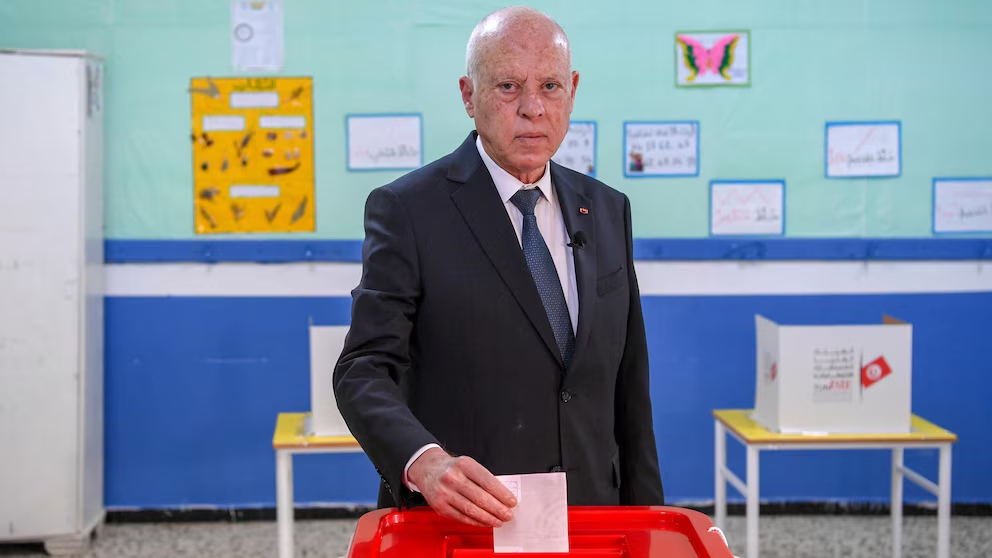Tunisia’s highest administrative court on Saturday ordered the country’s electoral commission to reinstate two candidates for the upcoming presidential election in October, warning that failure to comply could compromise the legitimacy of the vote.
The Administrative Court’s decision comes amid escalating political tensions in the North African nation and concerns from opposition parties and civil society groups about the potential for a rigged election favoring incumbent President Kais Saied’s bid for a second term.

The court mandated the reinstatement of candidates Abdellaif Mekki and Mondher Znaidi, who had filed new complaints against the electoral commission’s earlier decision to reject their candidacies. A third candidate, Imed Daimi, who was also previously disqualified, has not yet filed a second appeal.
In its ruling, the court stated that the electoral commission is obligated to implement its decision and, if necessary, review the electoral calendar. The court warned that failing to do so “would lead to an illegal situation that conflicts with the electoral law and the transparency of the electoral process.”
This legal intervention follows the electoral commission’s earlier refusal to comply with a court decision to restore the candidacy of these individuals, citing alleged irregularities in their candidacy filings. The commission, whose members were appointed by President Saied, has faced accusations from major parties and civil society groups of becoming a tool for the president against his rivals.
Farouk Bouasker, head of the electoral commission, has denied these accusations, stating that “the commission is the only constitutional body entrusted with the integrity of the election.”

The court’s decision comes a day after thousands of Tunisians participated in the country’s largest protest march in two years, demonstrating against restrictions on freedoms and what they perceive as an undemocratic electoral climate. Protesters chanted slogans including “Out with dictator Saied.”
President Saied, who was democratically elected in 2019, has faced criticism for tightening his grip on power and ruling by decree since 2021, a move the opposition has described as a coup.
The October 6 presidential election is seen as a critical test for Tunisia’s democracy, which has been under strain since Saied’s consolidation of power. The court’s intervention and the ongoing protests highlight the challenges facing the country as it approaches this pivotal vote.
As the situation develops, the electoral commission’s response to the court order and any potential adjustments to the election timeline will be closely watched by both domestic and international observers.
REUTERS


